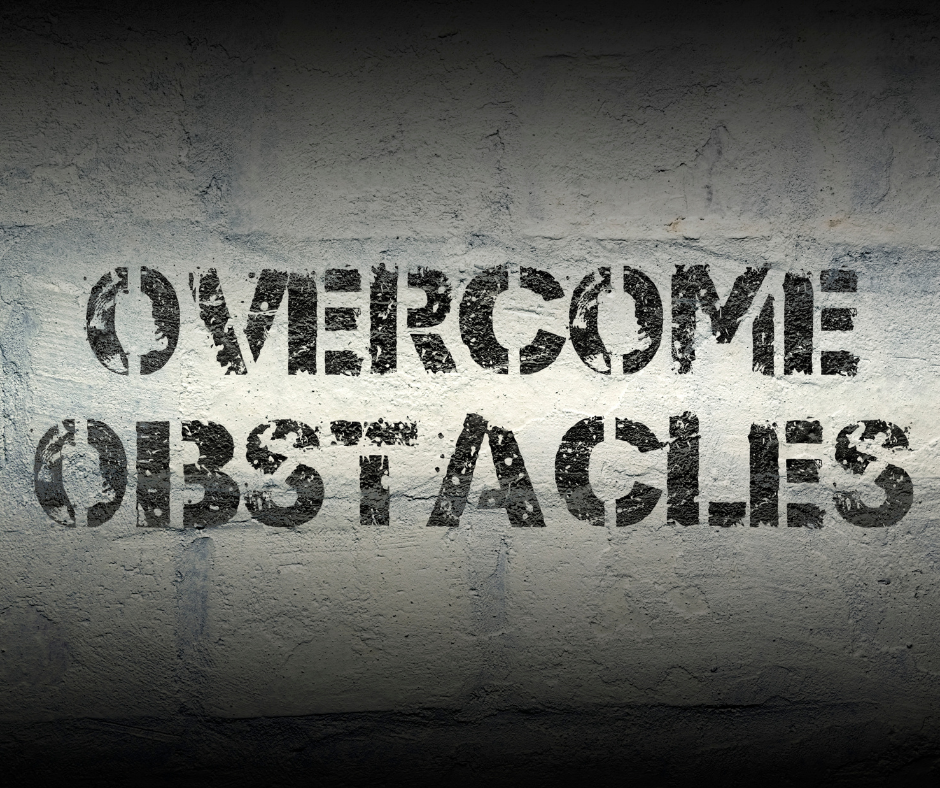Fear of failure can paralyze even the most capable women, especially those who have faced life’s toughest challenges. But what if failure was not something to fear, but something to embrace? What if it was a powerful force that could propel you to heights you never imagined? Why Women Fear Failure Society often holds women to higher standards, expecting perfection in every role—from motherhood to career. For widows, this pressure can be even more intense, with societal expectations adding to the burden of loss. Understanding this fear is the first step toward conquering it. The Power of Vulnerability Acknowledging your fear of failure is not a weakness; it’s a strength. When you are vulnerable, you open yourself up to growth. Embrace your fear and recognize that it is a natural part of taking risks and pursuing your dreams. Strategies to Empower Accept Imperfection: Embrace your imperfections as part of your unique journey. Perfect is an illusion; progress is what truly matters. Take Calculated Risks: Don’t let fear hold you back from trying new things. Start small, and as you gain confidence, take bigger steps toward your goals. Build a Support Network: Surround yourself with other women who understand the challenges of overcoming failure. Their support will be invaluable as you push past your fears. Learn from Each Experience: Each failure is a lesson in disguise. Analyze what went wrong, and use that knowledge to do better next time. Take Action Now Challenge yourself today to do something that scares you. Whether it’s speaking up in a meeting, pursuing a new career path, or simply trying something outside your comfort zone, remember that failure is just another step on the road to success. Empower yourself by facing your fears head-on and turning them into opportunities for growth.
Embracing Failure: Turning Setbacks into Stepping Stones for Women
Failure is not the end—it’s a beginning. Women across the world often face immense pressure to succeed, sometimes forgetting that setbacks are part of the journey. Embracing failure isn’t about accepting defeat; it’s about transforming it into a stepping stone toward greater success. Understanding Failure Women, especially those in vulnerable communities, often experience failure as a defining moment. It’s essential to shift this perspective. Failure is merely feedback, an opportunity to learn, grow, and come back stronger. By changing how we view failure, we empower ourselves to take risks and push beyond our comfort zones. Building Confidence Through Adversity Confidence isn’t about never failing; it’s about knowing you can rise again. For women, especially widows who may already feel marginalized, each failure can chip away at self-esteem. To build confidence, start by celebrating small victories and recognizing your resilience. Reflect on past challenges and how you’ve overcome them. This reflection fosters self-belief and prepares you to face future obstacles with courage. Strategies for Resilience Reframe Your Mindset: Understand that failure is not a reflection of your worth. Reframe setbacks as opportunities to learn. Seek Support: Surround yourself with a community that uplifts you. Share your struggles and triumphs with others who understand your journey. Set Realistic Goals: Break down your goals into smaller, manageable steps. This makes the path to success more achievable and less overwhelming. Practice Self-Compassion: Be kind to yourself during setbacks. Self-compassion fuels resilience, allowing you to recover from failure with grace. Take Action Now Embrace failure today. The next time you face a setback, remember it’s a stepping stone, not a stumbling block. Confidence and resilience aren’t built in moments of comfort—they’re forged in the fire of adversity. Embrace each failure as a step closer to your ultimate success.
Emerge from the Shadows: Amplifying the Voices of Widows in the Modern Age
The experience of widowhood has undergone significant evolution over the centuries, yet the voices and stories of widows often remain in the shadows, unheard and underrepresented. In the modern age, as society progresses towards greater inclusivity and empathy, it is imperative to amplify the voices of widows, acknowledge their unique challenges, and celebrate their resilience. Historical Context and Stigma Throughout history, widows have faced various forms of stigma, discrimination, and social exclusion. In many cultures, widows were expected to adhere to restrictive mourning practices, often enduring prolonged periods of isolation and limited social interaction. The portrayal of widows in literature, folklore, and media further perpetuated stereotypes and misconceptions, depicting them as pitiable figures devoid of agency and autonomy. Changing Narratives and Empowerment Fortunately, societal attitudes towards widowhood have shifted in recent decades, albeit gradually. There is a growing recognition of the strength, resilience, and potential for empowerment among widows. Initiatives and advocacy efforts aimed at supporting widows’ rights, providing access to education, healthcare, and economic opportunities, have gained momentum on both local and global scales. Challenges Faced by Widows Today Despite these positive strides, widows continue to encounter numerous challenges in the modern age. Economic instability, legal hurdles, social stigma, and lack of support networks are among the persistent barriers they face. Additionally, cultural norms and gender inequalities in certain regions exacerbate the vulnerabilities of widowed women, leaving them marginalized and overlooked. Empowering Widows through Education and Advocacy Education and advocacy play pivotal roles in empowering widows and elevating their voices. By promoting education and skills development, widows can gain financial independence, enhance their self-esteem, and contribute meaningfully to their communities. Advocacy efforts focused on legal reforms, social protection programs, and awareness campaigns help dismantle systemic barriers and foster a more inclusive society. The Role of Technology and Connectivity In the digital age, technology serves as a powerful tool for amplifying the voices of widows. Social media platforms, online communities, and digital storytelling initiatives provide avenues for widows to share their experiences, connect with peers, and advocate for change on a global scale. Technology also facilitates access to information, resources, and support services, bridging geographical barriers and expanding opportunities for widows’ empowerment. Celebrating Resilience and Inspiring Change It is essential to celebrate the resilience, strength, and contributions of widows to society. Their stories of courage, determination, and resilience inspire us to challenge stereotypes, break down barriers, and create a more inclusive world where widows are valued, respected, and empowered to fulfill their potential. Conclusion As we navigate the complexities of the modern age, let us emerge from the shadows and stand in solidarity with widows worldwide. By amplifying their voices, advocating for their rights, and fostering a culture of inclusivity and empowerment, we can create a brighter and more equitable future for all. Widows are not just survivors; they are agents of change, embodying resilience, grace, and the enduring spirit of hope.



